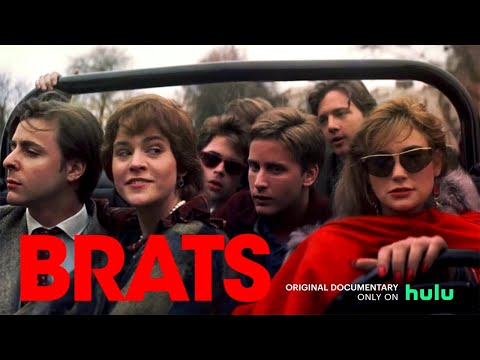Personal Growth | Social Media | Theatre
Bratt Pack Documentary – A Lesson in the Power of the Narrative
I don’t know what I was fully expecting from “Brats” the documentary about The Brat Pack by Andrew McCarthy – probably more insider movie stories and love triangles about Emilio Estevez, Rob Lowe, Molly Ringwald, Ally Sheedy, Andrew McCarthy, Judd Nelson, Demi Moore and Anthony Michael Hall. I did not realize that it was a serious documentary and therapy session for many of the actors who were put into that phrase and branded for most of their early careers.
What I thought would be a fun and funny documentary was more a lesson in the power of the narrative – the power of the media at that time, of how it could almost be viewed like cyberbullying and how the actors let it take power over them and how they saw themselves. It was sad. It was interesting. I thought a lot about it as a writer and the choices I may make.
Here are my five takeaways from the documentary:
1. Some Brat Pack members, just like many of us, let others’ views of them define them. Brat Pack members didn’t ask to be in that club and resented it, hated it. Andrew McCarthy was (maybe still is in some ways) haunted by being labeled a Brat Pack member. This documentary seemed to be his series of therapy sessions playing out on the camera. He seemed visibly uncomfortable, sad and angry at times. I ached for him. I had no idea he and others took this phrase so badly and let it define them and, in some ways, change their career and life paths. That is some serious power that the media had at the time. That leads to my second takeaway.
2. News can take off and the control over your own story is gone. The news media in the 80s and 90s had a lot of power and could even be viewed as cyberbullying, and that was before cyberbullying existed. The phrase “Brat Pack” began with an article by 29-year-old Davis Blum who was just looking to write an appealing story that gathered the attention for New York magazine. He sure did. After he put it out there though, it took a life of its own. It was out of David’s hands. Talk show hosts like Phil Donahue and David Letterman would bring up the phrase in every interview with any of the young actors. They could not escape it or avoid it even though they tried. This was at a time when social media was not around so you could not put out your own narrative to defend yourself or spin your own story.
3. The phrase took a life of its own – became a brand. Brat Pack was created after the term “Fat Pack” which was used the day before when the journalist went to dinner with a large group of friends. It was describing the number of people in the group not anything about their size or looks. He liked the rhyming aspect and also thought of the Rat Pack group. Once the term “Brat Pack” went out into the media, it then took on a whole separate life of its own. No one could control how it was used and nearly everyone wanted to use it and bring it up. It became a brand. Most people viewed it negatively especially those actors who were put into that phrase/category. It’s interesting how words stick. I liked how they interviewed Malcolm Gladwell to gain his view on the cultural influence of the phrase and its popularity. Malcolm said it worked in the 80s but it would never work or stick today.
4. Time, distance and reflection can help you overcome a difficult phase and phrase in your life or at least let it affect you less. 30 years later, and Andrew McCarthy and some Brat Pack members are still dealing with the aftermath of the phrase and term they were given. In many of the scenes, Andrew seems uncomfortable. So did Emilio Estevez to me. Then other actors like Demi Moore and Ally Sheedy seemed to be more at peace with it, accepting of it. Rob Lowe seemed to think it was fun and cool that it’s still being talked about now. It was interesting to see the different perspectives and perceptions that those who agreed to be interviewed had on the matter. They’ve avoided each other all these years because of this article and the media chaos and narrative that followed after it. I do commend Andrew for trying to work through his feelings and process why he’s let it negatively affect him so much. I bet he still has more work to do but at least he’s confronting his issues and the power it’s had over him.
5. The journalist who coined the phrase is mostly unapologetic and has no regrets, and I kind of admired that and also realized that I couldn’t be like him. I wouldn’t want to be that type of writer full-time. At the end of the documentary, Andrew faces the journalist David Blum responsible for the phrase and article. This part was intriguing to watch. Both men seemed a bit tense and edgy during this. Their body language was standoffish in many ways. David didn’t regret his decision to use the phrase or write it. He was looking for an angle and wanted to be published and get his name out there. He did. Andrew seemed to want him to apologize for being mean-spirited. David said it was a bit mean but didn’t really seem sorry about it. Surprisingly I kind of admired David for sticking to his guns and not regretting what he wrote. That part, the writer in me was glad. But seeing this whole piece also made me realize that although I can respect that, I also wouldn’t want to be that type of writer for a career. I prefer to share more positive stories. I prefer to find meaning and deep connections with other people. I like highlighting other’s journeys and not bringing them down. I guess that’s one reason I didn’t go into journalism. Not all journalists are like that. Many just tell the story as they see it with the facts presented. But I definitely prefer the features, the ordinary heroes that are interesting and good when no one is watching or looking for attention.
So, there you have it, my nuggets from the Brat Pack – it’s a club each member didn’t want to be in or asked to be in, but a few are OK with being a member now. The film demonstrates the power of the narrative and how it can control and even define our lives–if we let it or give it that power.
And now I’ll have “Don’t you forget about me” singing in my head all day long.


Leave a Reply